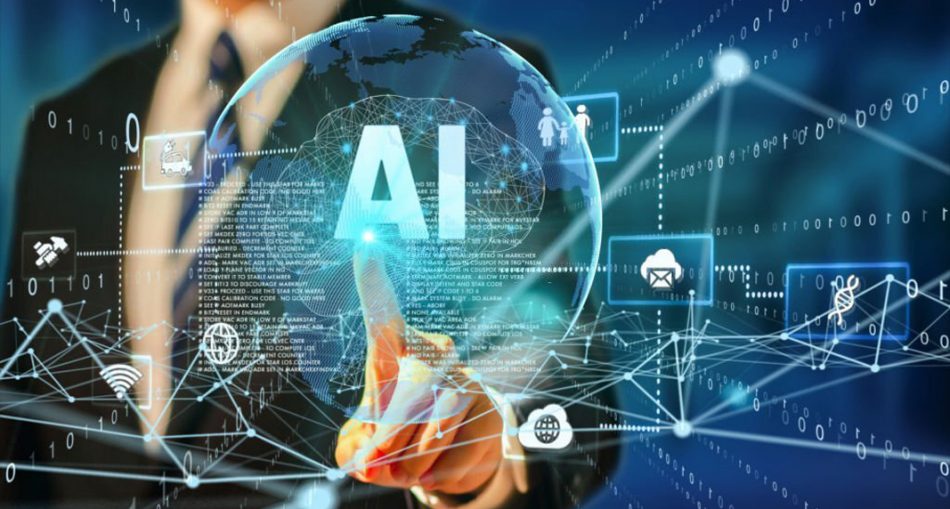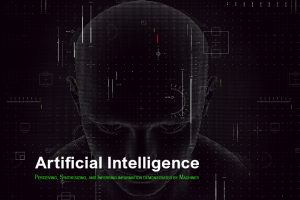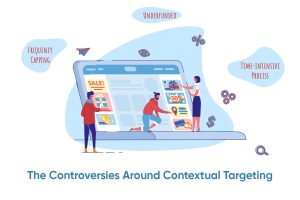Artificial Intelligence in Recruiting: A Detailed Guide for Human Resources Professionals
It is valid that the advancement and implementation of AI in the workplace could bring about employment losses; it’s important to note that advancement, space, and reason to create new positions come with misfortunes. The digitization of a few human resources activities may and will accompany the creation of new positions – occupations that we are yet to determine. AI will free us from the mechanical nature of our work and allow us to be more human – more personal and more intelligent. This article will talk top to bottom about Artificial Intelligence in Recruiting. It will be a detailed guide for HR professionals.
HR Analytics Is an Unquestionable Necessity for Any Large Company.
Software has eaten the world, and presently AI is eating software. The main application of AI is advanced analytics, enabling companies to have instant access to insights. HR analytics is also the primary AI use case HR professionals need to investigate. However, HR analytics accompanies its challenges. HR has been a field dominated by the clinician and liberal art majors for some time.
HR departments are mainly centered around managing wage and advantages costs on the quantitative side. As companies developed, HR started focusing on qualitative aspects of a company like culture and motivation. In spite of these challenges, various companies are rolling out HR analytics programs and highlighting their triumphs, for example, the ones beneath:
Study Analytics
Free text studies are the overview format that allows workers the most opportunity for decisions. Notwithstanding, they are also famously hard to evaluate as manual labor is necessary to analyze reactions. Click here to get in touch with the best hr agencies in Dubai.
Data-driven Hiring Is Potential Thanks to Enormous Data.
Hiring is essentially a search issue. Hiring managers attempt to answer the inquiry, “Which representative is the best fit for our company?”. It is an especially hard issue for humans as we have our own innate biases, which impact our judgement and lead to injustice and inefficiencies like racial or orientation pay gaps. So what might AI do?
As a matter of first importance, AI is anything but a silver slug, especially with regard to overcoming existing biases against race or orientation. For instance, Amazon utilized an AI recruiting apparatus in 2014, which was biased against ladies. Nonetheless, there are various areas where AI gives arrangements to increase your HR team’s proficiency and adequacy:
● Candidate outreach – Like any advertising activity, it is important to reach your candidates at the perfect opportunity through the right medium with the right message. With the advance in digital marketing, a lot of data is available to personalize your candidate outreach’s timing, medium, and message.
● CV filtering – CV is tedious and abstract to channel in many companies. Fear of missing a decent resume because of a careless misclassification haunts the best scouts. AI frameworks utilize online data combined with data introduced in the CV to create a comprehensive profile of the applicant. Based on best practices established in the company, the framework can channel
● CVs to minimize manual effort – Innovative arrangements are also rising for specific verticals. For example, AI-scored programming challenges for engineers like Lytmus, automated video interviews for regular positions pre-channel candidates, and save time for your team to zero in on more value-added challenges of HR.
● Candidate engagement – Engaging candidates is tedious anyway; without it, representatives are left with practically no information at an upsetting time. AI-controlled recruiting chatbots can send altered, automated messages to guarantee that representatives are informed of the perfect opportunities, minimizing unnecessary anxiety and ensuring that qualified candidates remain engaged.
AI Can Assist With Worker Training.
According to a report, 70% of workers revealed they would trust a robot over their manager for advice. Deploying an AI virtual guide can give personalized assistance throughout training by giving access to all undertaking records and arrangements, which can give fast answers to representative inquiries.
AI Can Identify Workers Who Are Probably Going to Stir.
Whenever candidates are recruited and trained, they become a valuable asset, and the stir turns into a worry. Indeed, great managers could detect stir even with next to no large data. Showing up late to work in a suit and a superior Linkedin profile are great indicators of beat. Nowadays, HR managers can depend on AI frameworks rather than such old-fashioned methods that managers carry out with their own watchfulness.
Understanding Employee Referrals
AI is also involved in enabling HR teams to be more likely to understand worker referrals by looking into the kinds of candidates representatives are referring to and gaining insight on who alludes the best ones. AI can also analyze performance data from past referrals and perceive when candidates similar to effective representatives are being suggested. AI gives HR departments a chance to work on the candidate and worker experience via automating redundant, low-value tasks and freeing up the opportunity to zero in on the more strategic, creative work that HR teams need and want to finish.
Instead of overseeing each new worker’s onboarding process progression, those means can be intelligently automated, leaving teams to invest additional time in additional important tasks, such as mentoring and gathering feedback. There are many insights to be gained through all the data that is gathered during the candidate and worker lifecycle.
Operational HR Activities Should Be Automated With Digitization or RPA
All thanks go to this digital world; operational HR activities like compensation and advantages will be almost totally automated. Moreover, present-day cloud or on-premise arrangements give paperless and automated arrangements. In any case, especially for large companies, legacy frameworks can forestall such efforts as they are difficult to integrate.
Where legacy frameworks forestall full digitization, Robotic Process Automation (RPA) bots will take over redundant human positions and digitize processes. RPA bots can be trained like workers and effortlessly perform dull actions while recording every action they complete.
Ai-based Chatbots Keep Engagement Conversation Going
Worker engagement is also a science, and part of that science is measuring and analyzing representative opinions on a day-to-day basis. AI-backed chatbots engage both the representative and HR professionals to make all the difference in the engagement conversation all year lengthy. Chatbots can give a natural, human-like, and always-on communication apparatus that engages the client in personalized conversations.
These conversations are then analyzed and leveraged to address the representative’s specific worries, wants, and needs. In any case, it doesn’t end there. The action after the conversation is similarly as critical as asking for feedback in any case. AI-backed chatbots allow HR practitioners to understand opinions so they can address potential roadblocks to take action and demonstrate to workers their voices matter, which helps engagement and lessens turnover.
HR leaders can investigate building custom AI answers for their specific issues. For example, they can launch data science rivalries or find support from AI consulting firms. This can assist them in constructing custom answers for their business with a restricted spending plan while also improving their boss branding. With all these devices at their disposal, the stakes are high for HR leaders to convey recharged HR departments that are both more proficient and more successful.
Wrapping Up
Machine learning and artificial intelligence are fast gaining traction in the public. This has brought about a massive shift in how individuals worldwide interact with innovation and their teams. The relationship between humans and machines is being redefined by busy working, and there is no one size-fits-all approach to effectively managing this change. Instead, organizations need to partner with their HR organization to personalize the approach to implementing AI at work in request to measure up to the changing assumptions of their teams around the world. We trust this article has provided you with future insight into AI for HR professionals. Click here to get in touch with the best hr agencies in Dubai.
Author Bio:
Sunny Chawla is a Managing Director at Alliance Recruitment Agency. He specializes in helping client for international recruiting, staffing, HR services and Careers advice service for overseas and international businesses.







